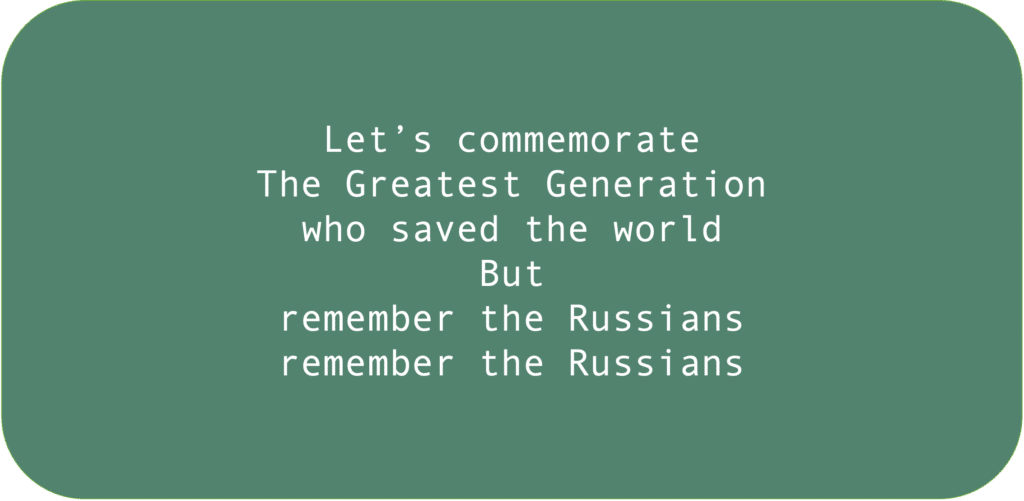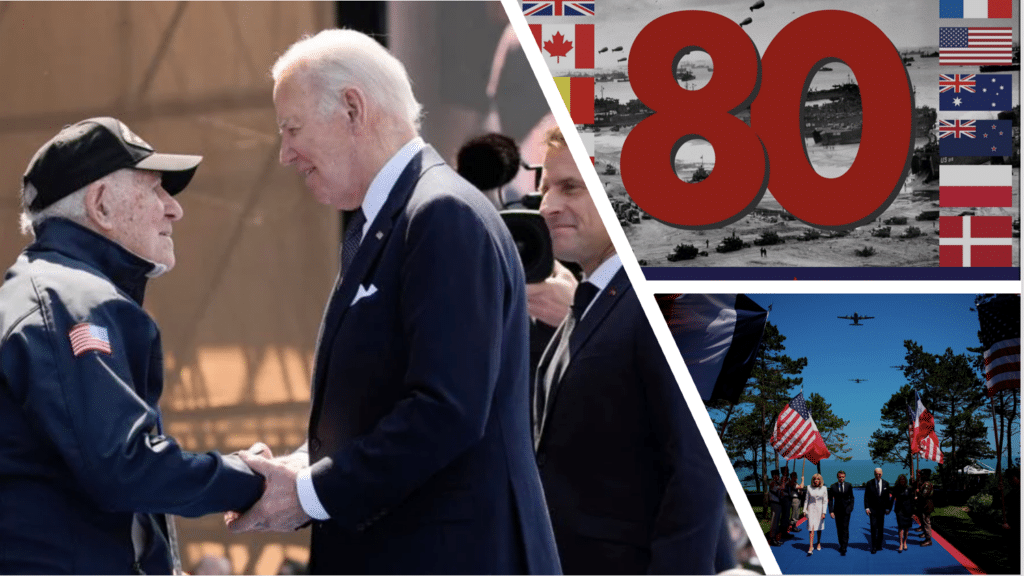
Every year, Western leaders gather to commemorate D-Day. It’s a solemn occasion that pays tribute to the sacrifices “The Greatest Generation” made to win World War II.
We rightly celebrate the Allied forces from the United States, Britain, France, and Canada for their heroic efforts to save the world from fascist tyranny. But let’s not forget that Russia played an indispensable role.
Overlooked Russia
In recent years, Russia has been absent from these commemorations. And its absence is conspicuous because the Soviet Union endured the greatest sacrifices among all Allied forces.
The Eastern Front, often overshadowed in Western narratives, was a brutal theater where millions of Soviet soldiers and civilians perished. The Battle of Stalingrad marked a turning point, significantly weakening Nazi Germany’s military capabilities.
Frankly, that battle and the Siege of Leningrad made the D-Day Normandy Landings look like a day at the beach … with picnic brawls.
The Crimea concession
However, the absence of Russian leader Vladimir Putin from the D-Day commemorations since 2014 is no coincidence. That year marked a pivotal moment in modern geopolitics: Putin forced Western leaders to cede the Crimea region of Ukraine to Russia.
That event echoed a dark moment in world history: Hitler coerced Western powers into conceding the Sudetenland region of Czechoslovakia to Germany in 1938. Most notably, the policy of appeasement emboldened Hitler and made World War II inevitable.

Historical parallels and future threats
The concession of Crimea raises similar concerns. Because the parallels between the Sudetenland and Crimea are striking, and the potential for history to repeat itself looms large.
Indeed, today’s geopolitical chessboard is eerily reminiscent of the 1930s, with authoritarian leaders testing the resolve of democratic nations. If history teaches us anything, it’s that appeasement leads to greater conflict. The risk of World War III, while seemingly far-fetched, becomes more plausible in this context.
Given this complex geopolitical reality, it’s understandable why D-Day commemorations focus predominantly on the Western Allies’ contributions. But ignoring Russia’s sacrifices diminishes the comprehensive understanding of World War II’s Allied victory.
Mr. Biden, acknowledge Russia!
Again, as we honor the bravery and sacrifice of the Allied forces on D-Day, let us also remember the crucial role Russia played in defeating fascism.
As the “leader of the free world,” President Biden will give the keynote address at today’s D-Day ceremony. I urge him to rise above politics and Putin’s creeping tyranny to acknowledge and commend the Russian veterans. After all, they composed a greater percentage of that “Greatest Generation” than American veterans.
That would be the right thing to do, morally and politically. In doing so, Biden would lead Western leaders in acknowledging the full scope of the struggle against tyranny.
This unconditional acknowledgment might also disrupt Putin’s autocratic narrative, which paints Western leaders as hell-bent on threatening and belittling Russia. It would highlight the shared history that binds us, even amid contemporary geopolitical strife.